|
Abstract Sex is the core of whole human society. When sexuality is silenced and considered as too much a private affair, the complex forms or diversities of sexualities are ignored. Homosexuals are stigmatized and discriminated in the society. Stigma, internalized homophobia, discrimination, lack of family support makes them undergo a plethora of psychological problems. Health consequences vary from depression, heightened levels of anxiety to low self-esteem. There are evidences to show that homosexuals are more at the risk of experiencing poor mental health services than other men due to hate crimes, rejection, discrimination and internalized homophobia. The combination of internalized homophobia and chronic stress are likely to result in mental health problems. Mental health is the foundation for well-being and effective functioning for an individual and for a community. Deprivation of homosexuals resulting from mental health prevents them from effective participation in day-to-day social functioning and socio-economic process of the society which is vital to building of robust nation and civil society. This article is an attempt to shed light on problems of mental health of homosexuals. KEY WORDS: sexuality, vulnerability, homosexual, homophobia, mental health, discrimination, stress Introduction Sex is the core of whole human society. It is the matter of existence. All norms, practices, customs, social institutions, rituals, beliefs, kinship, relations, social systems of human society are based on sex, sexuality and sexual relations of that society. But many societies view ‘sex’ as a secret, personal, private affair and feel embarrassed or hesitated to discuss publicly. Though sex is an important part of life, it is relegated to silence. There are, therefore, a lot of misbelieves, misconceptions, stigma around sex and also on people who are marginalized due to their sexuality. When sexuality is silenced and considered as too much a private affair, the complex forms or diversities of sexualities are ignored. Heterosexuality is considered as the only sexuality and heterosexual behavior is considered to be normative sexual behavior. Other sexualities like homosexuality, bisexuality, etc are denied and looked as perverse, abnormal or unnatural. In Indian context, ‘homosexual behavior’ is not a new phenomenon. But the concept of ‘homosexuality’ is of a recent origin. The existence of homosexual behaviour can be seen in our ancient scripts like Puranas, Bhaghavatha, Ramayana, Mahabharata, Jathaka, Kamasutra, Manusmrithi etc. There are many instances of homosexuality in all ancient, medieval, colonial periods. Though the sexual relationship was not explicitly mentioned in ancient scripts, one can witness, intimate relationships between same sexes, practicing celibacy for not genuine reasons, sex change, changing the gender, reproduction in non vaginal sex, sexual attraction with transgendered person etc. Shiva-Mohini relationship, story of Shikandi, Manikanta’s birth, Arjuna became Brihannale, Manikanta-Vavara friendship etc are narrated by Ruth Vanitha and Saleem Kidwai in their work ‘Same sex love in India’.(Vanitha, Ruth and Kidwai, Saleem, 2000, italics are added) Homosexuals are stigmatized and discriminated in the society. Stigma, internalized homophobia, discrimination, lack of family support makes them undergo a plethora of psychological problems. The heterosexual norms in society and homophobia forbid them from expressing their sexuality. It is very difficult for them to fit into the usual heterosexual norms. It makes their condition more perplexed. There are many and complex linkages between health and human rights of the vulnerable groups. Violations or lack of attention towards human rights can have serious health consequences on certain groups (Chatterjee and Sheoran, 2007). Discrimination of people on any ground is recognized to lead to poor health outcomes, particularly in relation to mental health. Homophobia is one such outcome of the host of impacts, which has a serious negative impact on the mental health of sexual minorities. Health consequences vary from depression, heightened levels of anxiety to low self-esteem. There are evidences to show that homosexuals are more at the risk of experiencing poor mental health services than other men due to hate crimes, rejection, discrimination and internalized homophobia. The combination of internalized homophobia and chronic stress are likely to result in mental health problems. WHO describes mental health as: “A state of well-being in which the individual realizes his or her own abilities, can cope with the normal stresses of life, can work productively and fruitfully, and is able to make a contribution to his or her community”. Mental health is the foundation for well-being and effective functioning for an individual and for a community. This is consistent with its wide and varied interpretation across cultures. Mental health and mental illnesses are determined by multiple and interacting social, psychological and biological factors. The greater vulnerability of disadvantaged people in each community to mental illnesses may be explained by such factors as the experience of insecurity and hopelessness, rapid social change, and the risks of violence and physical ill-health. According to the U.S. Department of Health and Human Services, the fact that LGBT(Lesbian Gay Bisexual Transgender) youth live in ‘a society that discriminates against and stigmatizes homosexuals’ makes them more vulnerable to mental health issues than heterosexual youth.(Ray , 2006) Dr. Apu Chakraborty is of the opinion that homosexual people tend to experience more mental health problems than heterosexual people. Discrimination may contribute to the higher risk. The people who are discriminated experience social stresses, which in turn increase their risk of experiencing mental health problems. Chakraborty’s team looked at the rates of mental disorder among 7,403 adults living in the UK, whose details were obtained from the Adult Psychiatric Morbidity Survey 2007. Rates of depression, anxiety, obsessive compulsive disorder, phobia, self -harm, suicidal thoughts, and alcohol and drug dependence were significantly higher in homosexual respondents (Chakraborty, 2011). Studies say that there is a close relationship between the issues of sexual identity and mental health. Present article is a study based on primary data conducted in the Dharwad District of Karnataka with the following objectives.
Methodology: Subjects of the present study are male homosexuals. Respondents were approached in drop in centers (DIC) of the NGO, both in Hubli and Dharwad. Respondents from whole Dharwad district that is from Dharwad, Hubli, Navalgund, kundogola, Annigere, Alnavara and Kalaghatagi taluks visit the DICs. Two set of data collection techniques were proposed: a. Interview schedules and b. Focus group discussion. The sample size of our study is 304. The Convenience sampling technique was used to select the respondents for the study. Following are the major issues we have come across in our study which are presented below. Family and Social isolation Social isolation is the pervasive withdrawal or avoidance of social contact or communication. It also refers to the purposive state of having minimal contact with other people. It is a lack of access to social support and the lack of meaningful social relationships, roles, and activities. Homosexuals feel isolated from family and society. Table 1 speaks about the isolation of homosexuals from family and rest of the society. 34% of respondents shared that they feel isolated from family and society. 56% admitted that they do not feel so. 10% respondents have not responded properly. Homosexuals are humiliated, tortured and not considered in any decision making process of the family after their identities are disclosed. Internalized homophobia, guilt, low self esteem make them feel inferior in the society. It results in isolation and marginalization of homosexuals from wider networks of society. Our respondents have following premises to judge that they have been isolated from the sphere of family relations: a. They are not given any responsibility in any of the functions of family because family members do not believe in their capacity. b. There is no intimate or friendly relationship between brothers of the homosexuals. They show more irritability, intolerance, aversion, hatred etc. They feel more isolated. c. Family members do not treat them as a member of family. They are always excluded in the process of decision making and financial matters. d. Parents discuss about the future life of their heterosexual children but never discuss about the future life of the homosexual children. e. If homosexual happens to be an elder son in family, he will not be given responsibility to take decisions and lead the family f. Their body, pocket, bags are searched while they are in sleep. g. In some communities, people ask them to sing and dance on the previous day of the marriage but they do not invite them for marriage in the next day. h. Parents refuse to take with them to marriage and other occasions outside. Self Destructive Behaviour Self destructing behavior is common in homosexuals. It is expressed in such acts as cutting the arms by blades, pressing the burning cigarette on their body, holding the burning candles in to their arm or palm, holding the burning camphor, heating the spoon in fire and making marks on the arm, writing names in the arm by blade, cutting the bangles and piercing the arm, scratch the arm by glass piece, cutting the nerve by blade, biting once own body part, swallowing the glass pieces, tablets, piercing by pen, drinking alcohol without mixing water etc. Valentine, Skelton and Butler (2002) are of the opinion that self-destructive behavior is an effect of homophobia. Homophobia can contribute to young people feeling bad about their own sexuality and developing low self-esteem or even self-loathing. These emotions can trigger self-destructive cycles of behaviour such as drinking, drug taking, and unsafe sexual practices and self-harm. They suggest that homophobia can make it harder to access support and the ensuing isolation can contribute to young people’s self-destructive behaviours ((Elizabeth McDermott, Katrina Roen& Jonathan Scourfield, 2008). According to Lisa R Ferentz, Self-harm is first, and foremost, a coping strategy. It manages overwhelming thoughts and feelings by short circuiting them. Often, an individual’s behavior will be triggered by a simple life event. Creating a mark or an injury is a way to make internal and invisible wounds external and visible. (Lisa R. Ferentz, 2001). Table 2 gives information about the extent of self destructive behaviour prevailing among homosexuals. Table shows that around 26% respondents have admitted the self destructive behavior they indulge in. It shows the enormity of mental stress among the homosexuals and cruel and harmful methods they undergo to cope up with the stress. Coming Out The concept ‘coming out’ can be used in two contexts. One is realizing the homosexual identity and asserting the same. The other is trying to give up the behavior pattern due to different reasons. Here the term is used in the latter sense. Table 3 shows the attempts of homosexuals to give up their behaviour due to hostile treatment from family and wider networks of community. 38 percent of the respondents admitted that they have attempted to give up their behaviour. 57 percent of the respondents have not succumbed to pressure to repudiate their behaviour. Around 5 percent of the respondents have not responded properly. Though the proportion of respondents who have attempted to repudiate their sexual behaviour is less comparatively, it is not absolutely less. 114 respondents out of 304 respondents have attempted to give up their behaviour is an indication of the extent of the brunt being borne by homosexuals. Due to unbearable torture from the family, homosexuals are living under the cover, intolerance and humiliation in day to day life of the society. They are leading their lives without identity, recognition, worry about future etc. Moreover, homophobia makes them to give up their homosexual behaviour. But they haven’t succeeded in that attempt. It creates lots of confusion and repercussions in their mind. Loneliness Loneliness is a painful awareness that where one does feel being connected with others. Loneliness encompasses feeling of unacceptable, unloved, not cared, a state of no one being there to share personal feelings, experiences, alienation from the surroundings, difficult to make friends and go beyond mere acquaintance. Mutual relationships are important in social life. Lonely people often report feeling depressed, angry, afraid, and being misunderstood, highly critical of one-self, overly sensitive or self-pitying, or critical of others Table 4 sheds light on the extent of loneliness prevailing among the respondents. Around 47 percent of the respondents admitted their loneliness. Around 37 percent of the respondents expressed that their life was not affected by loneliness. It emerges from the above table that nearly half of the respondents are affected by loneliness. Apathy in parental care for homosexual member, humiliation within and outside the family and treatment of them as if they are not humans all contribute in pushing them into loneliness. Identity Crisis Psychologist Abraham Maslow explains in his ‘hierarchy of human needs’ that the need for self esteem is one of the important requirements of human beings. According to him, self recognition and reputation are the important elements of self esteem. Identity of an individual is chiefly influenced by recognition and reputation. Homosexuals tend to develop crisis about their identity which is due to hostile reaction of society on their sexuality. Table 5 is concerned with understanding the crisis being faced by homosexuals in their day to day life. It is an alarming as more than half of the respondents, around 54 percent (n=164), have admitted that they face severe problems in expressing their sexual orientation, let alone assertion of their sexuality.
Conclusion Mental health is very important in human life. Without sound mental health one can not enjoy his or her life, cannot have control over their life. The person who does not possess a good mental health could not participate effectively in social, economic and political processes of the country. People who are not mentally ill are secluded from the mainstream of society. Denial from the family, society, internalized homophobia, humiliation from the people around them, confusions about gender roles and one’s own sexual identity make homosexuals more vulnerable to problems of mental illness. This study reveals alarming outcomes:
Reference: Books
Web Sources
Reports
Supriya P R Research Scholar, Department of Studies in Social Work, University of Mysore, Manasagangotri, Mysore-570006 Dr C Usha rao Associate Professor, Deapartment of Social Work, University of Mysore, Manasagangotri, Mysore-570006 |
Categories
All
Social Work Learning Academy50,000 HR PROFESSIONALS ARE CONNECTED THROUGH OUR NIRATHANKA HR GROUPS.
YOU CAN ALSO JOIN AND PARTICIPATE IN OUR GROUP DISCUSSIONS. MHR LEARNING ACADEMYGet it on Google Play store
|
SITE MAP
SiteTRAININGJOB |
HR SERVICESOTHER SERVICESnIRATHANKA CITIZENS CONNECT |
NIRATHANKAPOSHOUR OTHER WEBSITESSubscribe |
MHR LEARNING ACADEMY
50,000 HR AND SOCIAL WORK PROFESSIONALS ARE CONNECTED THROUGH OUR NIRATHANKA HR GROUPS.
YOU CAN ALSO JOIN AND PARTICIPATE IN OUR GROUP DISCUSSIONS.
YOU CAN ALSO JOIN AND PARTICIPATE IN OUR GROUP DISCUSSIONS.
|
|

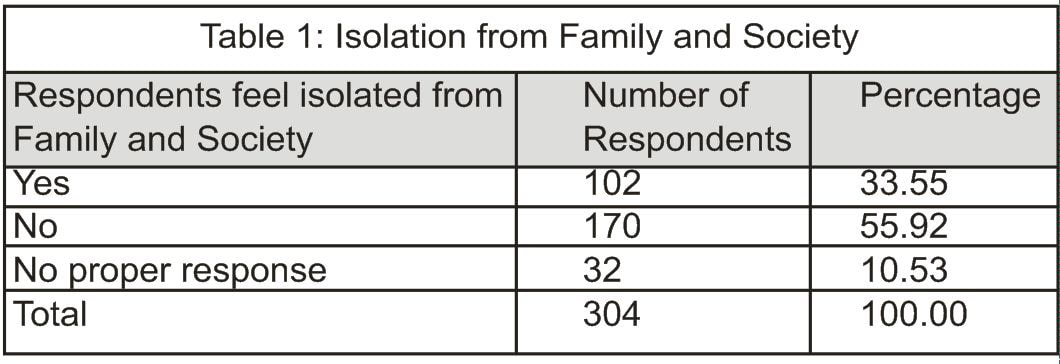
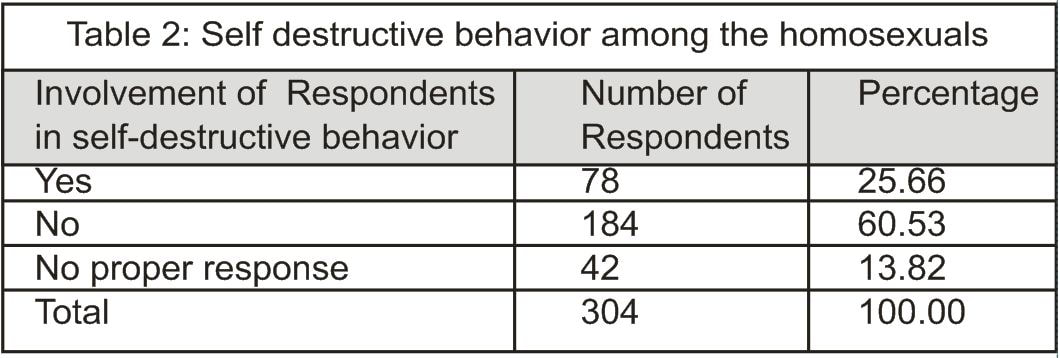
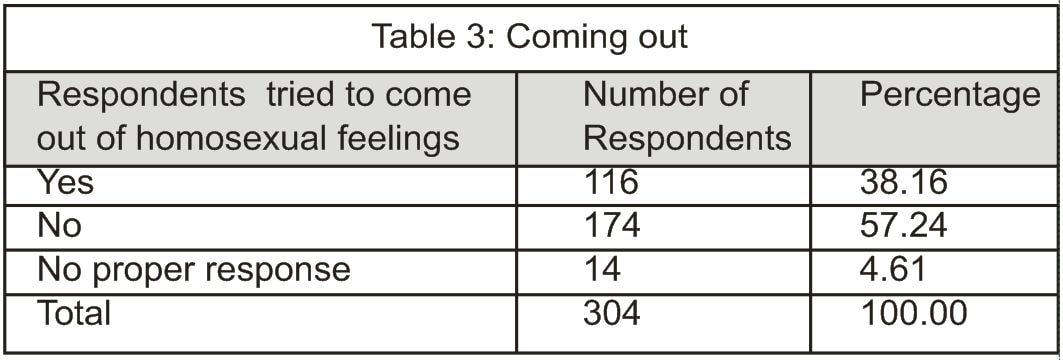
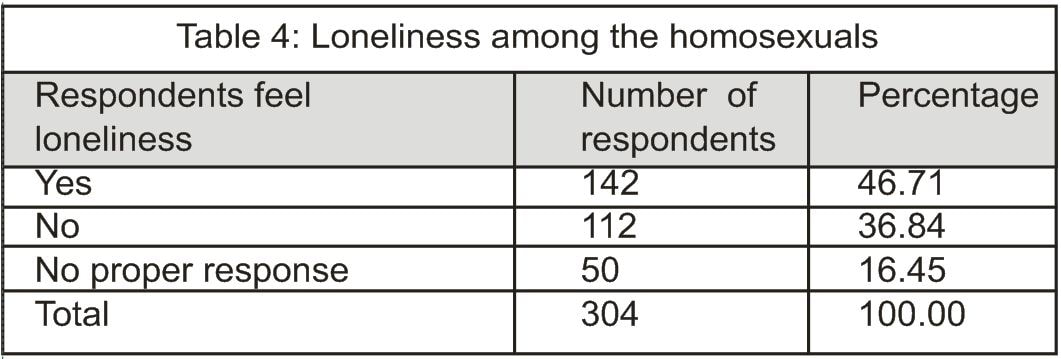
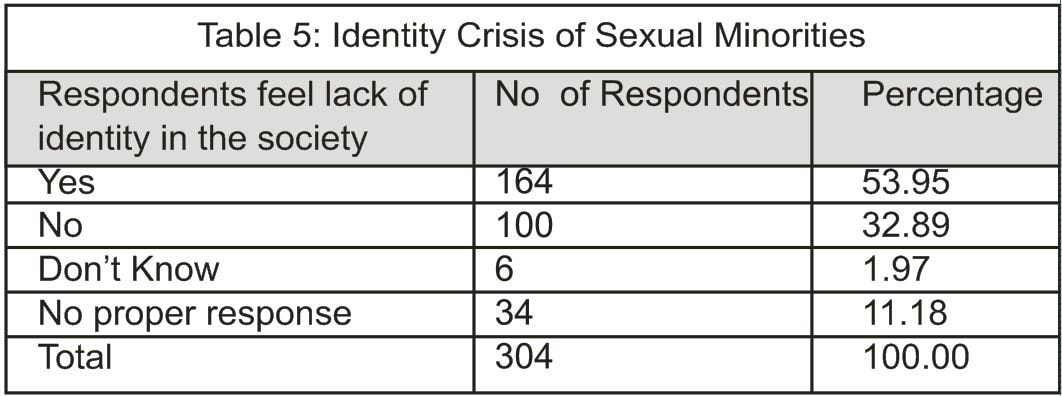





 RSS Feed
RSS Feed





